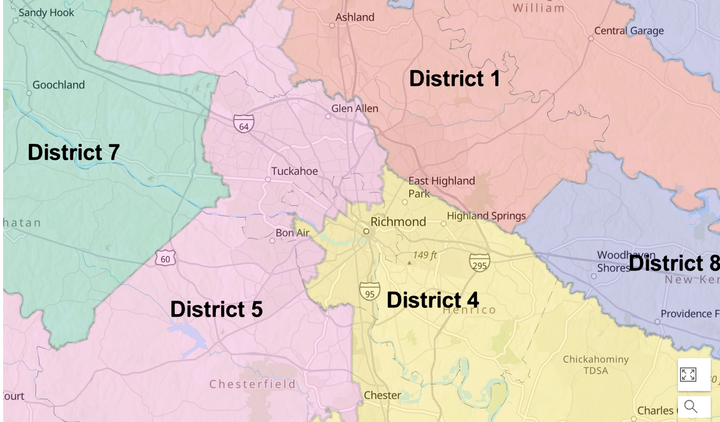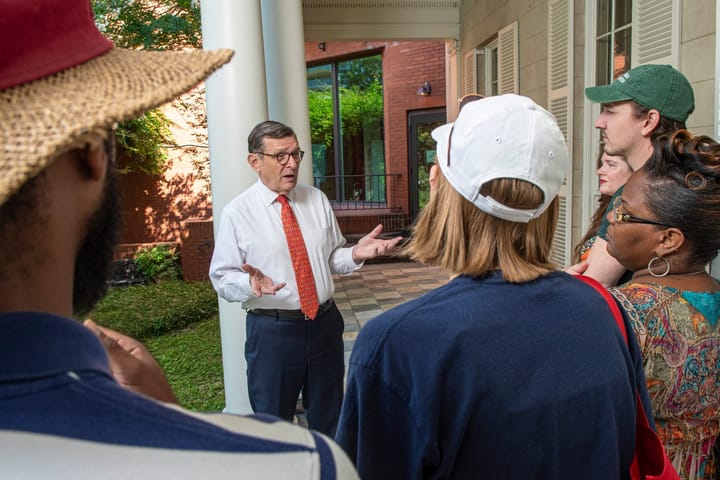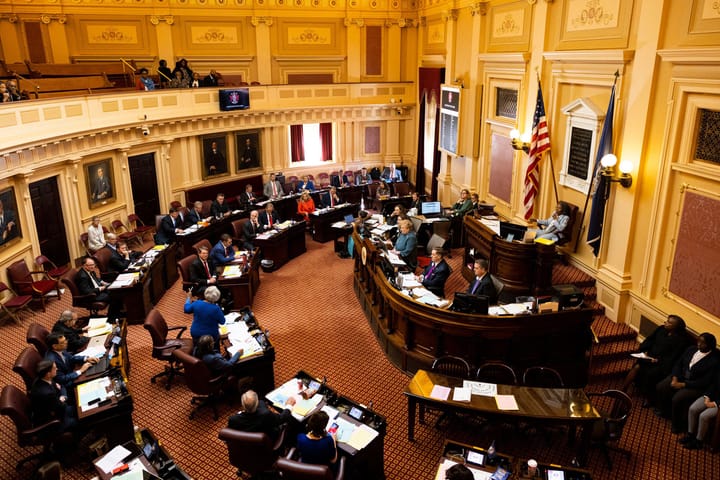RPS summit with state legislators produces friction over budget requests
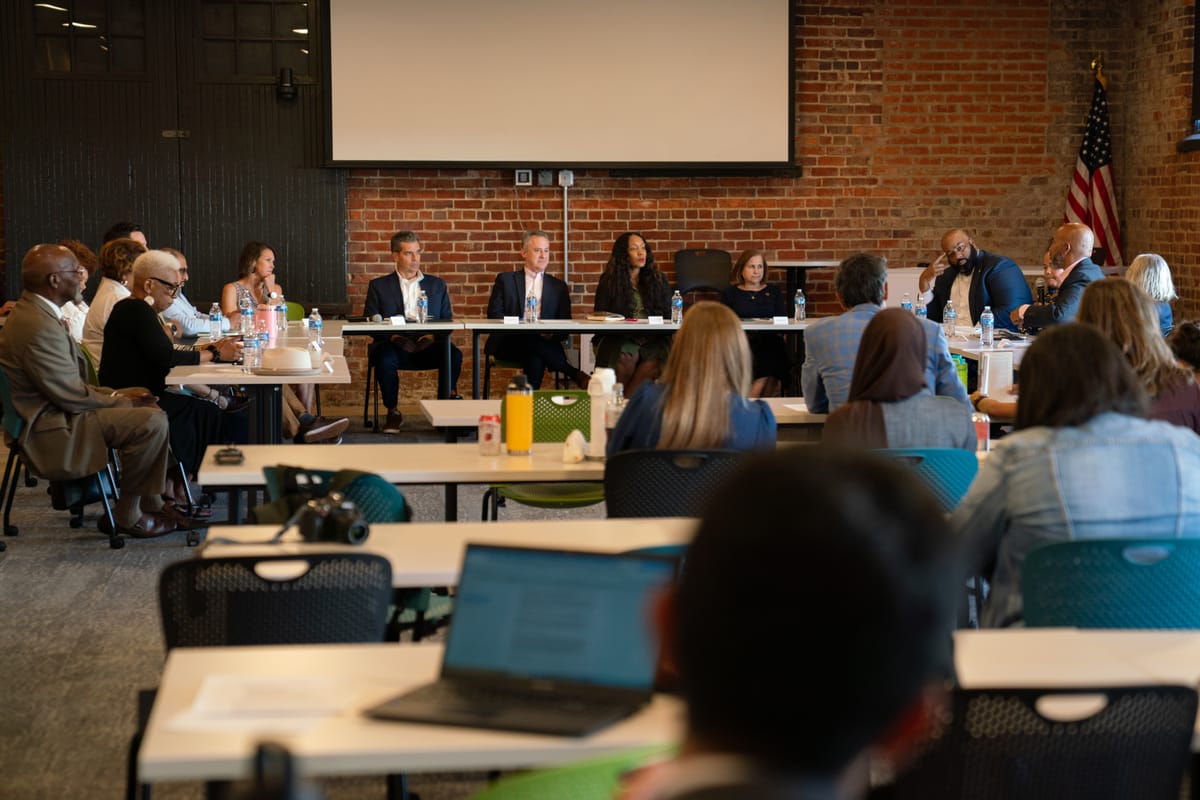
At a Friday joint meeting between the Richmond School Board and members of the Virginia General Assembly, some School Board members blamed the state for failing to provide funding for the division’s aging infrastructure.
The meeting, organized by Sen. Ghazala Hashmi (D-Richmond) aimed to let board members and the superintendent discuss pressing issues in their districts and provide a wishlist of bills and budget items they want the Richmond representatives to advocate for in the upcoming legislative session.
But those conversations at times derailed from what the division needs and how state officials can assist to what one board member described as “throwing tomatoes across the room.”
“We are quick to throw our colleagues in City Council under the bus when we can. And they’re quick to throw you guys under the bus too, I’m not gonna lie. And I think in all honesty, in some of the conversations I’ve had – you guys are quick to throw us under the bus too,” said Vice Chair Matthew Percival (1st District).
Del. Rae Cousins (D-Richmond) stopped Percival while speaking, emphasizing that all bodies are on the same team in getting RPS what it needs.
“Everyone here on the state level for decades has been working to bring more funding to RPS,” she said. “I’m completely aware of the issues that RPS faces. And so I’m just hoping we can have a productive conversation about what it is that RPS really needs.”
A detailed 2024 assessment of RPS buildings shows that the division needs $36 million in immediate repairs. The division has a $2.5 million annual budget for maintenance.

Sen. Lamont Bagby (D-Richmond) said the deteriorating school conditions are not solely because of the lack of state or federal funding, but also the result of poor management that may have occurred before the current Board and superintendent. The way to fix that, he said, was through a capital improvement plan that would include future construction projects for Richmond schools – a document he said he asked for multiple times ahead of the meeting that the division failed to provide.
“I called Henrico, I called Chesterfield … they sent their capital improvement plans to me, like that,” he said. “Right now, we don’t have anything before us.”
The division does not currently have a five-year capital improvement plan, which is required of it, but proposed CIP projects for this school year during the recent budget cycle.
The division is working to develop a 10-year master facilities plan based on the findings outlined in the 2024 assessment of RPS buildings that will help officials prioritize repairs and make informed decisions about whether schools should be renovated or not. The division also intends to create a capital improvement projects committee that will include both members of Superintendent Jason Kamras’ administration and members of the public.
Bagby also said he was upset the superintendent referred to the legislators as “folks across the street” while watching the news.
“I had to go get a new TV because I threw my shoe at the TV,” he said. “I’m like, ‘That’s not how we’re going to move forward.”
Kamras clarified at the meeting that he was not solely referring to Bagby or the other Richmond representatives present, but rather the entire legislative body and “most of the folks on the other side of the aisle [who] have not stepped up to be responsive.”
He told Bagby that he could send an analysis of what the current maintenance needs are “literally, within the next 10 minutes.”
At one point, Board member Shonda Harris-Muhammed (6th District) questioned the reason for having the meeting at all, saying that multiple conversations have been had numerous times and nothing has changed.
“I support the work that you all do, absolutely ten toes in the dirt,” she said. “But coming back here, talking about the same things – and I know you need support – but it’s like why? Because things remain the same.”
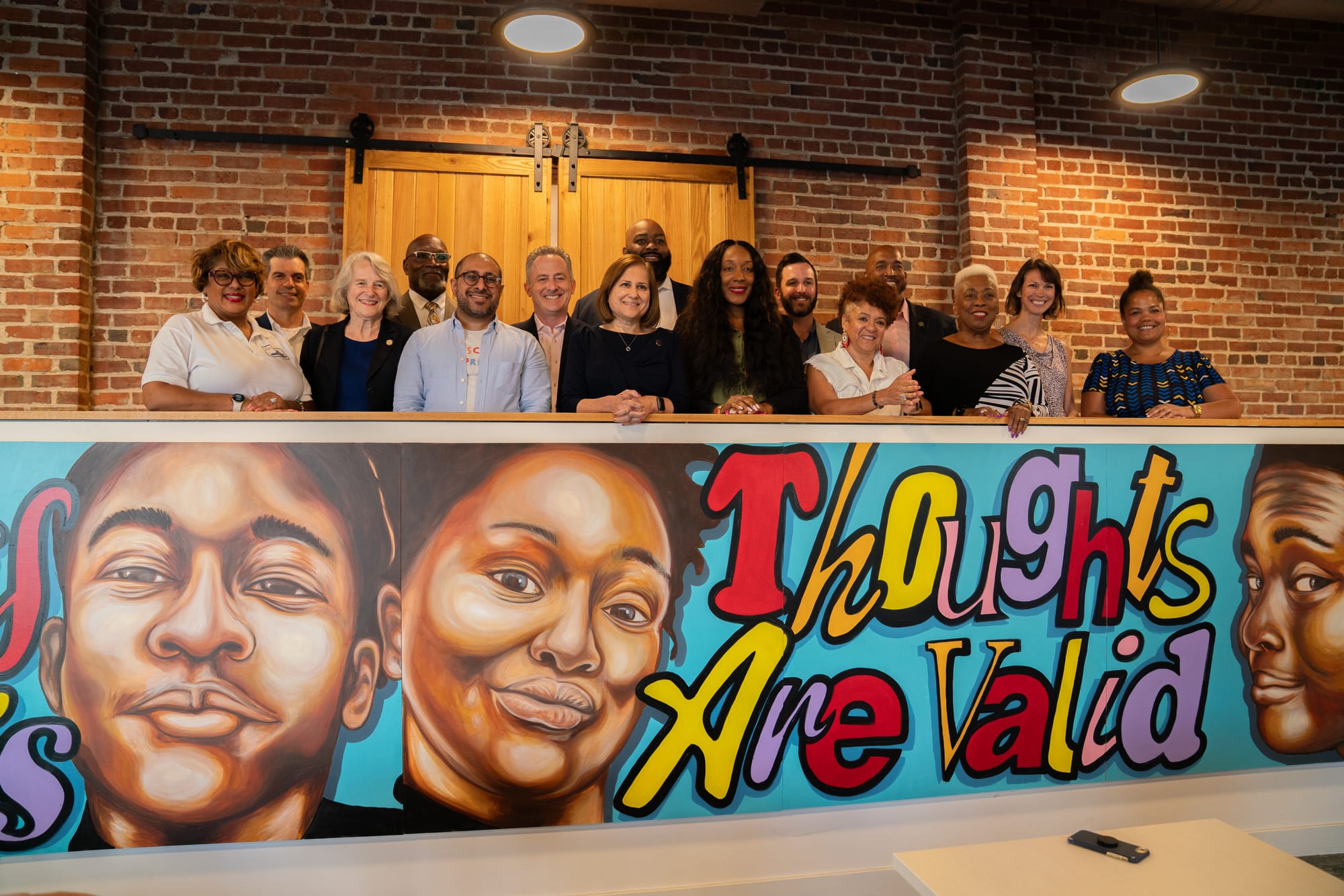
This year is the second consecutive year a joint meeting between the two bodies has occurred. The conversation “helps us craft the legislative and the budgetary work that we want to focus on,” Hashmi said.
The Board also met with city officials in late August to better understand each others’ budgets, during which both bodies also blamed the state for its underfunding.
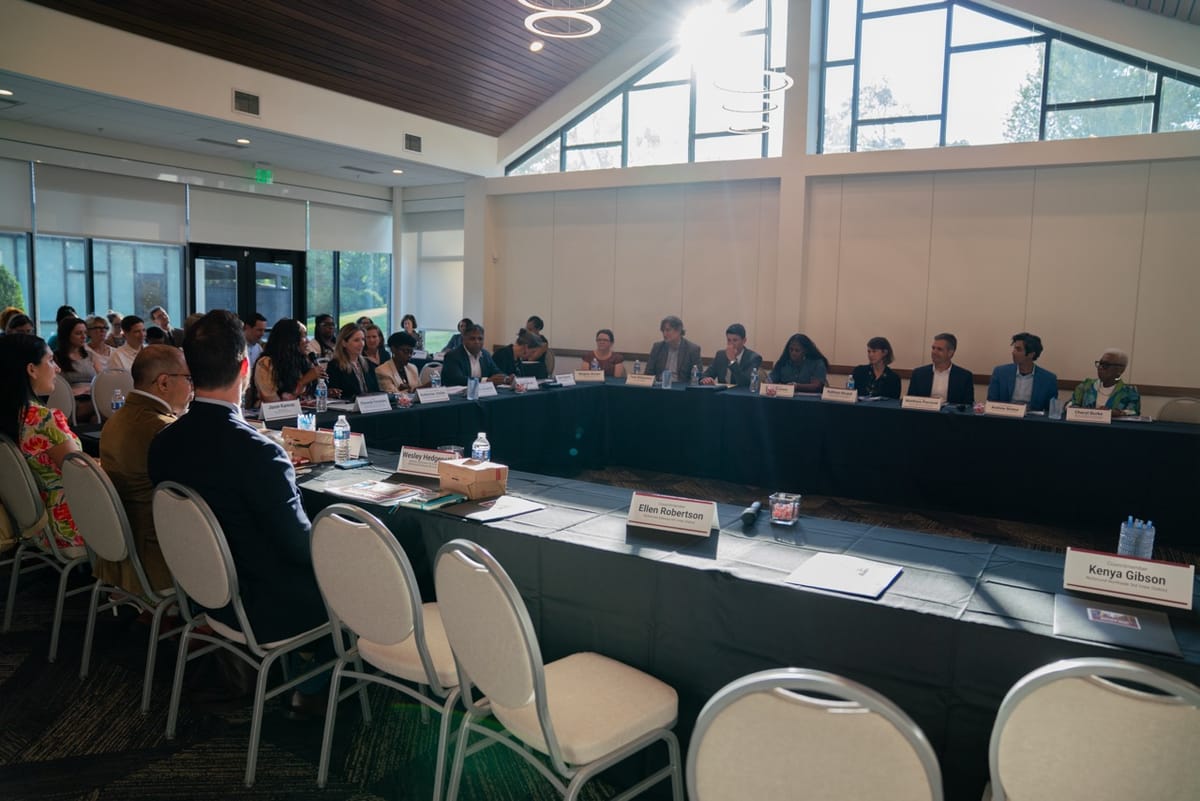
In an attempt to address funding to school construction, Board members suggested that the legislators advocate again for Richmond to be able to propose to voters a local 1% sales tax that would go towards school construction.
That proposal was vetoed by Gov. Glenn Youngkin this past session. Board Chair Shavonda Fernandez said the division could receive about $20-25 million annually from the tax.
The group agreed to have a larger meeting including other stakeholders, like City Council and the Richmond Redevelopment Housing Authority, particularly when it comes to addressing school infrastructure and additional funding issues.
“It will help all of us,” Bagby said.
It's our birthday week! Will you help us reach our goal of finding 50 new members to support local reporting?
The varying requests
Board members also told state legislators that their districts consist of students, families and staff that deal with homelessness and a lack of mental health services, issues they hope the state can address this upcoming session.
“We have families and children that come to us everyday that have had challenging weekends, challenging evenings,” Cheryl Burke (7th District) told members. “They leave a safe place of school and then they walk home in neighborhoods with no sidewalks, or I get calls everyday after they walk through the alleys in fear of what’s happening.”
Lenient licensure for teachers and gun safety were among the potential bills RPS officials wanted legislators to advocate for. Board members Harris-Muhammed and Katie Ricard (2nd District), said that the division needs more teachers and they have seen people express interest in teaching in RPS but have a hard time doing so because of strict license requirements.
Students at Open High School and Maggie L. Walker Governor’s School conducted a walkout in protest to gun laws the day of the meeting, calling for stricter gun control laws, a request also raised by Board member Wesley Hedgepeth (4th District). A John Marshall High School student was killed this May in a shooting weeks before he was supposed to graduate. The division also experienced a shooting outside of a graduation ceremony for Huguenot High School in 2023.
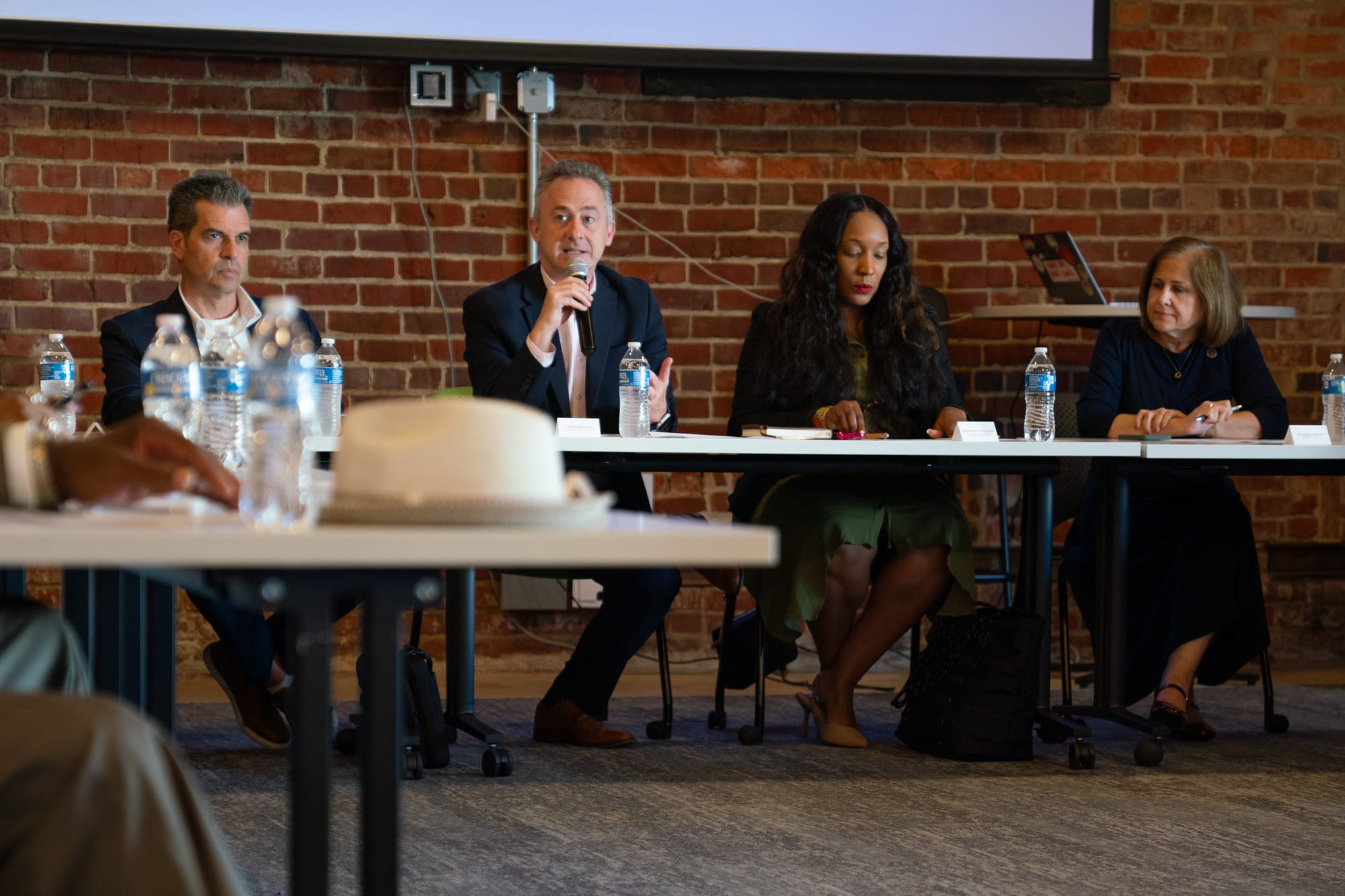
Adding to the 1% sales tax for school construction discussion, board members also discussed the revival of old legislation or other legislation that didn’t pass during the most recent legislative session, like state-led partnerships between businesses and schools and a bill providing culturally responsive and language-appropriate mental health support services.
“RPS serves a richly diverse student population who include multilingual families and very cultural backgrounds. It’s not a one size fits all,” Board Chair Fernandez said.
The Board also expressed interest in partnering with other localities throughout the Commonwealth, including rural areas.
Despite the difficulty in passing some legislation, Hashmi highlighted actions the General Assembly is working on, like working to revise the State’s Standard of Quality funding formula, which calculates the cost school divisions need to meet the Commonwealth’s requirements that ensures high-quality public education. The state’s independent watchdog, Joint Legislative Audit and Review Commission, found that the formula severely underfunds Virginia’s public school divisions, putting more burden on the city to make up the difference.
The General Assembly also provided funding this past session to fully lift a cap implemented in 2009 that limited how much the state would invest in school support staff – like bus drivers, janitors, and cafeteria workers.
“We are your advocates. We are our children’s advocates. We have the same constituents,” she told the Board. “So it’s not you versus us – it is us together fighting for a common cause.”
Contact Reporter Victoria A. Ifatusin at vifatusin@richmonder.org
The Richmonder is powered by your donations. For just $9.99 a month, you can join the 1,000+ donors who are keeping quality local journalism alive in Richmond.





